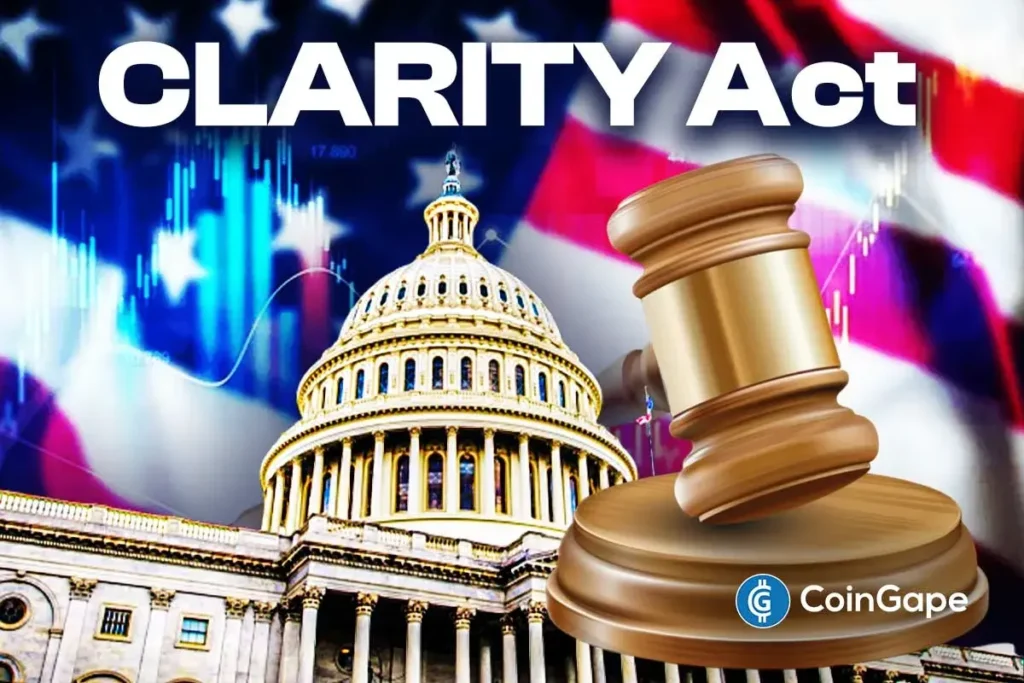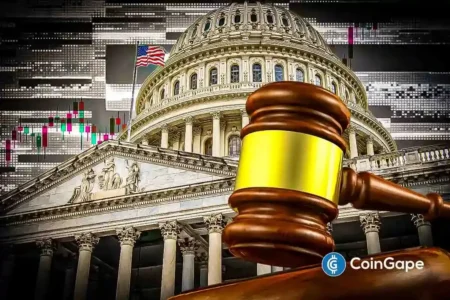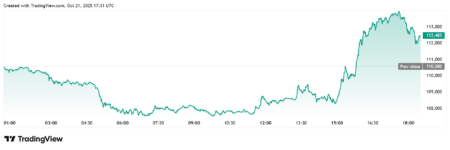Crypto Market Structure Bill: CLARITY Act Delayed Amid Government Shutdown Concerns
The landscape of cryptocurrency regulation has been a hot topic of discussion, especially with the introduction of the crypto market structure bill known as the CLARITY Act. However, recent developments indicate a setback for this legislation, primarily due to the looming U.S. government shutdown. As of now, the anticipated markup phase that was originally scheduled for September 30 seems increasingly unlikely to occur this month. This article delves into the latest updates regarding the CLARITY Act and what it means for the future of crypto regulation in the United States.
Setback in the Markup Phase
According to journalist Eleanor Terrett, the markup for the CLARITY Act, which Senate Banking Republicans had been targeting for September 30, is now off the table. Terrett revealed this information through an X post, citing sources from both Consensus and Capitol Hill. With the Senate out of session for a week and returning just in time for the critical deadline of September 29, efforts to prevent a government shutdown will dominate congressional discussions. The timing has left little room for meaningful dialogue on the bill, which many had hoped would progress this month.
Lack of Bipartisan Feedback
One critical factor contributing to the delay is the absence of substantial feedback from Senate Democrats. Reports indicate that Democrats are advocating for a collaborative approach to the CLARITY Act, meaning they want an agreement between both parties before delving into negotiation details. In a press release last week, Senate Democrats called for "true collaboration," further emphasizing the need for bipartisan cooperation in shaping cryptocurrency regulations. This hesitant approach underscores the complexity of the ongoing discussions and the various political dynamics at play.
Looming Government Shutdown Complications
The current government shutdown situation poses significant challenges to the legislative process, particularly for the crypto market structure bill. With a potential shutdown looming, it becomes almost impossible to schedule the markup for the CLARITY Act on September 30. The looming deadline adds urgency to legislative efforts, which could influence not just this bill but several others in the pipeline. It raises questions about how effectively the Senate can focus on meaningful discussions around cryptocurrency regulation when the threat of a government shutdown hangs overhead.
New Target Dates and Legislative Prospects
Despite this delay, sources suggest that a new target date for the markup could be set for the week of October 20. However, this projected date remains flexible, subject to the political landscape. Terrett also pointed out that the Senate Agriculture Committee is anticipated to introduce its own bill regarding the Commodity Futures Trading Commission’s (CFTC) regulatory oversight of the crypto industry during the same timeframe. This development could serve as a catalyst for the CLARITY Act, allowing for a broader conversation around cryptocurrency regulations and possibly emphasizing the need for cohesive legislative action.
Integrating House Proposals
Another critical aspect of the legislative process involves the U.S. House’s version of the crypto market structure bill. As the Senate moves forward, there will be an opportunity to see how the House’s proposals may be incorporated into the Senate’s version of the CLARITY Act. This integrative approach could create a more robust framework for crypto regulations, although it remains to be seen how effectively both sides can collaborate to achieve a mutually acceptable outcome.
Conclusion: Looking Ahead
The uncertain timeline for the CLARITY Act does not diminish its significance or the urgency for legislative action in the cryptocurrency space. While the upcoming markup appears delayed, the ongoing discussions among lawmakers and stakeholders signal a growing recognition of the need for structured regulations in this burgeoning industry. With potential dates on the horizon and bipartisan calls for collaboration, the future of the CLARITY Act—and U.S. crypto regulation, in general—remains a topic of crucial interest for industry advocates and market participants alike. As legislation continues to evolve, stakeholders will need to remain vigilant and engaged, ensuring that regulatory frameworks are effectively aligned with the dynamic nature of the crypto landscape.
















